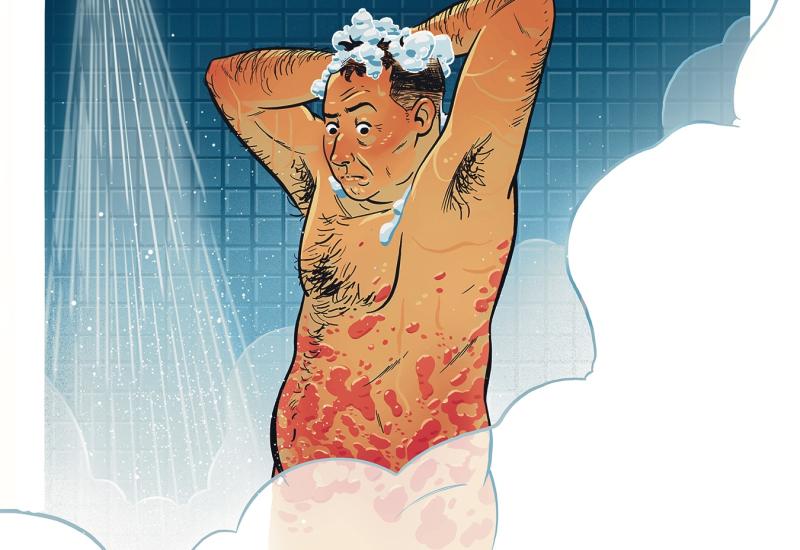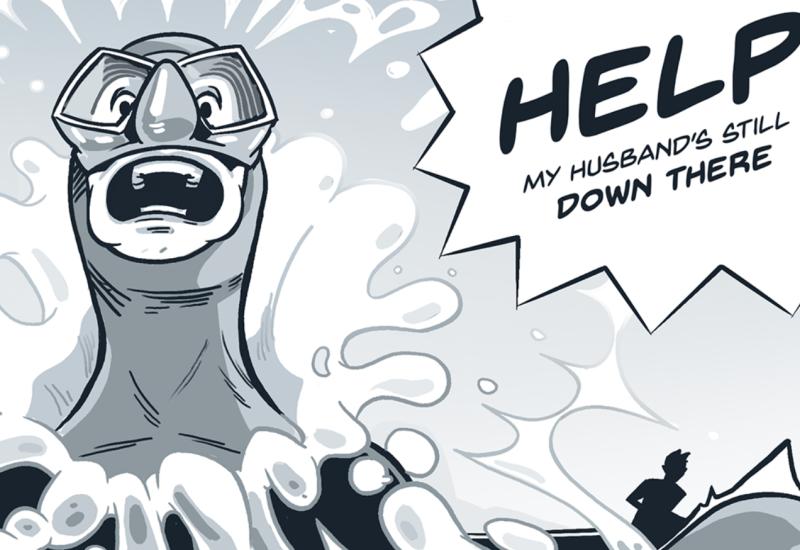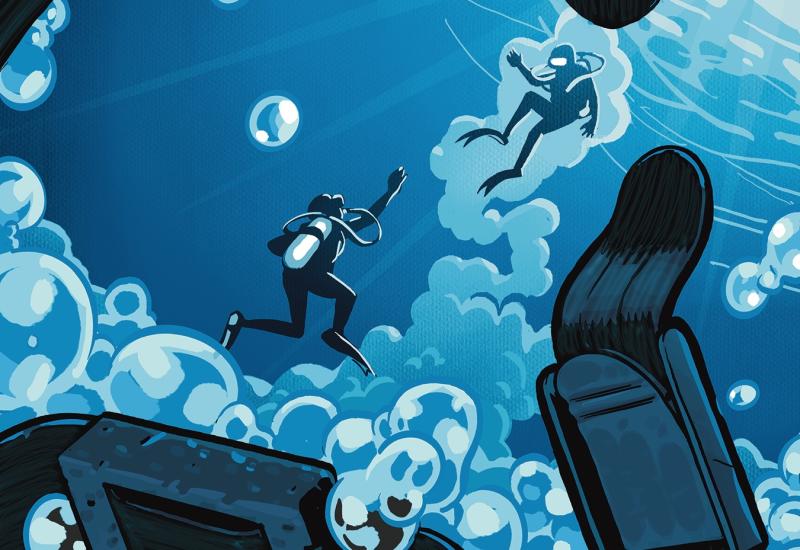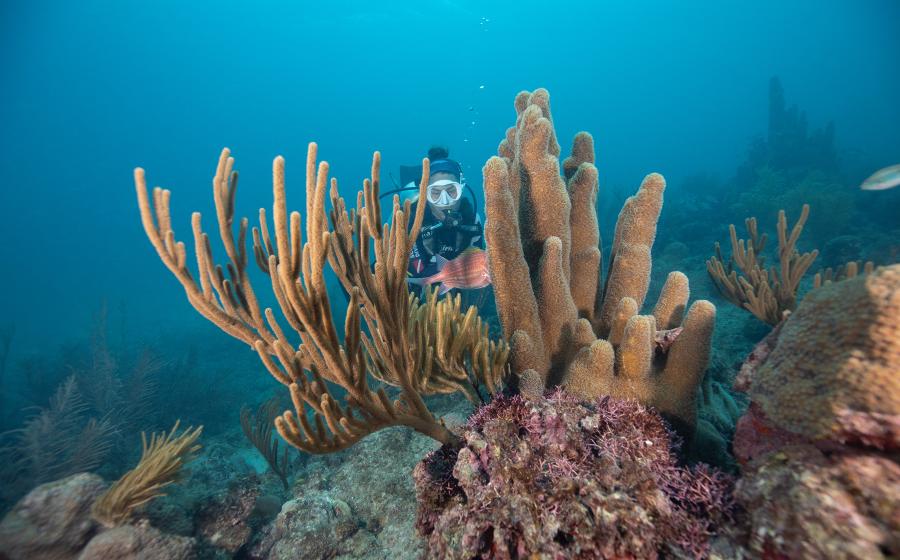Lessons for Life: Ignoring Clues Leads to Chamber

Lessons for life
Alicia was new to diving and loved every minute she spent underwater. Unfortunately, those had been few and far between since she had been certified six months before. She had only four dives in her logbook since certification. That made her doubly excited to be diving in the ocean for the first time on an extra-long weekend away that would double her total number of dives. If it weren’t for a nagging pain in her shoulder and neck, everything would be perfect.
THE DIVER
Alicia was a fit and active 25-year-old. When her grandfather suggested she try scuba, she thought it was a great opportunity to try something new and spend more time with him too. He had been diving for years, and she loved to listen to him describe what he saw. When a spot on a trip opened up at the last minute, she jumped at the chance. Her grandfather wasn’t able to come, but she couldn’t wait to tell him stories this time.
THE DIVES
Plans included a two-tank dive each day. Alicia didn’t know any of the other divers, so the instructor leading the trip buddied her up with another diver. Alicia’s new buddy had been diving for a couple of years and had a full set of gear, including a computer. Alicia had planned to use dive tables, but decided to follow him and use his computer to monitor her dives. On the first day, she completed both dives; the first to 90 feet for 30 minutes followed by a dive to 45 feet for approximately 45 minutes. On the second day, she made dives to 80 feet and 60 feet, staying well within the no-decompression limits on her buddy’s computer. The ocean was a little rougher that day, and she had to pull herself up the ladder to get in the boat through the swells. On the third day, Alicia made one 100-foot dive in the morning, but she skipped the second dive, saying she was tired and wanted to relax. On the last day, Alicia made both dives, to 80 and 50 feet respectively. Over the four-day dive trip, Alicia made a total of seven multilevel dives without problems. She made safety stops after each of the deep dives, and practiced ascending slowly at the end of all of her dives, although she did not have a dive watch. She stayed with her dive buddy throughout.
THE ACCIDENT
Following the second day, Alicia’s left shoulder and neck were sore, and she had trouble sleeping. No matter how she tossed and turned, or tried to move her arm and shoulder, the pain didn’t change. She attributed it to her struggles getting on board the rocking dive boat and ignored it. On the last day, she noticed the pain in her neck and shoulder felt better underwater, but hurt worse when she got back on the boat. Back home, the pain in her neck and shoulder continued to bother her. She took ibuprofen, but it didn’t help much. Days later, she called her grandfather to tell him about the trip and mentioned the pain. After discussing the situation, he suggested she call her doctor. After she described the pain, and told the doctor it began while diving, he referred her to the local hyperbaric unit. She was treated with a U.S. Navy Treatment Table 6, spending nearly five hours in the chamber. The shoulder and neck pain improved after the first treatment. She received two shorter treatments; at the end of the third, the pain in her neck and shoulder was gone.
ANALYSIS
Alicia’s dives were not provocative and were well within accepted limits, although it is difficult to know the exact depths and times of her dives since she wasn’t monitoring them for herself. There are many different factors that influence a diver’s likelihood of decompression sickness, and researchers are still attempting to determine them all. Alicia did several things wrong. The first was not monitoring her own dive profiles. The second mistake was not recognizing the symptoms of decompression sickness. The third mistake was not telling anyone else about it. There is no single definitive sign that shows up in all cases of decompression illness. A typical symptom is pain without an obvious cause. Alicia attempted to explain away pain she didn’t understand. Any time a diver has unusual signs such as pain, weakness or numbness, and tingling within 24 hours of diving, the diver should suspect the possibility of decompression illness. The fourth mistake Alicia made was continuing to dive. Each exposure to pressure after the symptoms appeared potentially made the problem worse. The fifth and final mistake Alicia made was not seeking treatment until five days after the symptoms appeared. The longer the delay to treatment, the greater the risk of permanent residual problems.
Lessons for Life
- Plan your own dive, and follow your own dive computer or tables.
- Take a diving first-aid class to learn the signs and symptoms of decompression illness and how to provide care for an injured diver.
- Report any possible signs and symptoms of decompression illness.
- Do not continue to dive if there is a possibility you have decompression illness until cleared by a physician.
Eric Douglas co-authored the book Scuba Diving Safety, and has written a series of dive-adventure novels and short stories. Check out his website at booksbyeric.com.
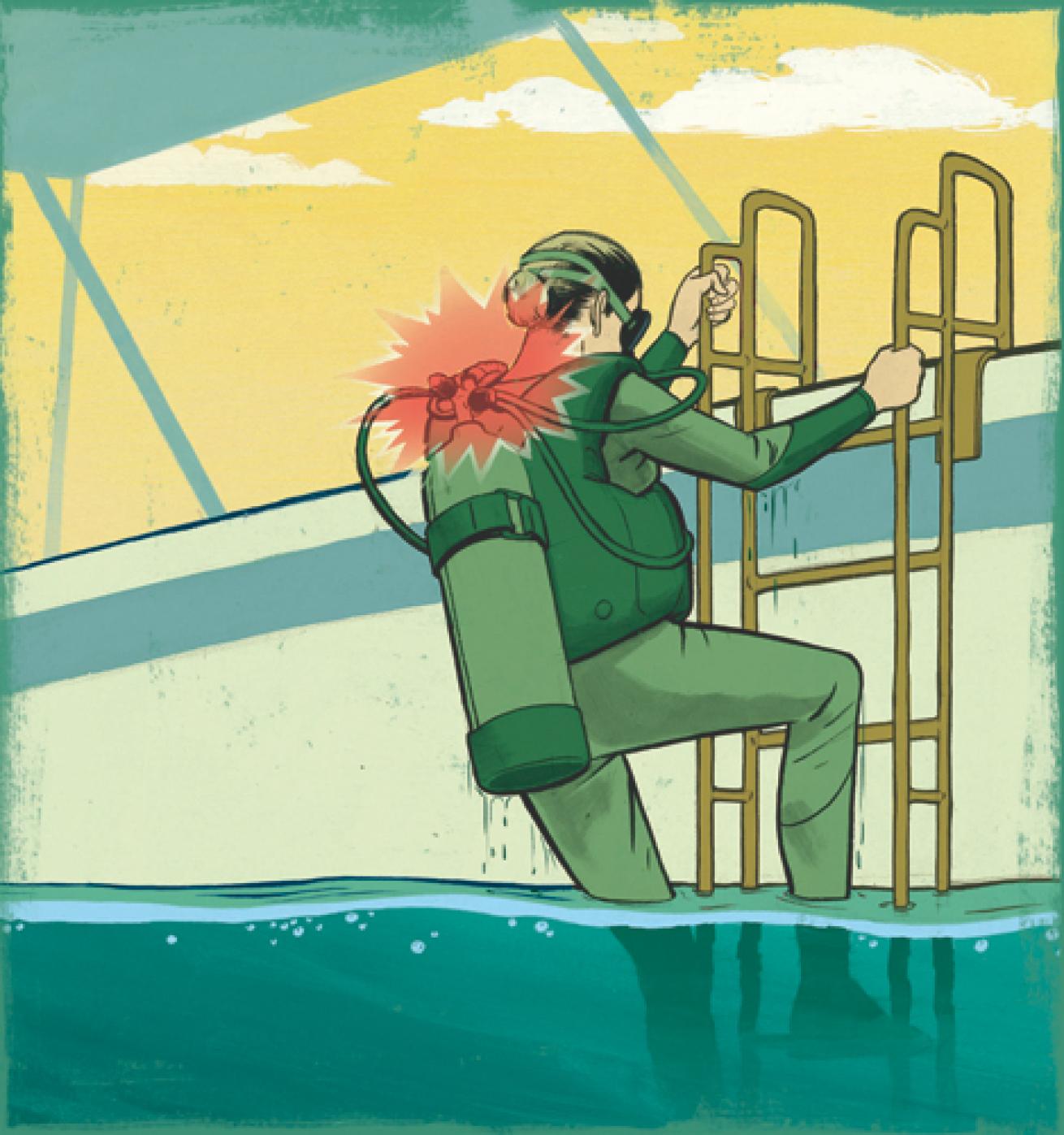
Alicia was new to diving and loved every minute she spent underwater. Unfortunately, those had been few and far between since she had been certified six months before. She had only four dives in her logbook since certification. That made her doubly excited to be diving in the ocean for the first time on an extra-long weekend away that would double her total number of dives. If it weren’t for a nagging pain in her shoulder and neck, everything would be perfect.
THE DIVER
Alicia was a fit and active 25-year-old. When her grandfather suggested she try scuba, she thought it was a great opportunity to try something new and spend more time with him too. He had been diving for years, and she loved to listen to him describe what he saw. When a spot on a trip opened up at the last minute, she jumped at the chance. Her grandfather wasn’t able to come, but she couldn’t wait to tell him stories this time.
THE DIVES
Plans included a two-tank dive each day. Alicia didn’t know any of the other divers, so the instructor leading the trip buddied her up with another diver. Alicia’s new buddy had been diving for a couple of years and had a full set of gear, including a computer. Alicia had planned to use dive tables, but decided to follow him and use his computer to monitor her dives. On the first day, she completed both dives; the first to 90 feet for 30 minutes followed by a dive to 45 feet for approximately 45 minutes. On the second day, she made dives to 80 feet and 60 feet, staying well within the no-decompression limits on her buddy’s computer. The ocean was a little rougher that day, and she had to pull herself up the ladder to get in the boat through the swells. On the third day, Alicia made one 100-foot dive in the morning, but she skipped the second dive, saying she was tired and wanted to relax. On the last day, Alicia made both dives, to 80 and 50 feet respectively. Over the four-day dive trip, Alicia made a total of seven multilevel dives without problems. She made safety stops after each of the deep dives, and practiced ascending slowly at the end of all of her dives, although she did not have a dive watch. She stayed with her dive buddy throughout.
THE ACCIDENT
Following the second day, Alicia’s left shoulder and neck were sore, and she had trouble sleeping. No matter how she tossed and turned, or tried to move her arm and shoulder, the pain didn’t change. She attributed it to her struggles getting on board the rocking dive boat and ignored it. On the last day, she noticed the pain in her neck and shoulder felt better underwater, but hurt worse when she got back on the boat. Back home, the pain in her neck and shoulder continued to bother her. She took ibuprofen, but it didn’t help much. Days later, she called her grandfather to tell him about the trip and mentioned the pain. After discussing the situation, he suggested she call her doctor. After she described the pain, and told the doctor it began while diving, he referred her to the local hyperbaric unit. She was treated with a U.S. Navy Treatment Table 6, spending nearly five hours in the chamber. The shoulder and neck pain improved after the first treatment. She received two shorter treatments; at the end of the third, the pain in her neck and shoulder was gone.
ANALYSIS
Alicia’s dives were not provocative and were well within accepted limits, although it is difficult to know the exact depths and times of her dives since she wasn’t monitoring them for herself. There are many different factors that influence a diver’s likelihood of decompression sickness, and researchers are still attempting to determine them all. Alicia did several things wrong. The first was not monitoring her own dive profiles. The second mistake was not recognizing the symptoms of decompression sickness. The third mistake was not telling anyone else about it. There is no single definitive sign that shows up in all cases of decompression illness. A typical symptom is pain without an obvious cause. Alicia attempted to explain away pain she didn’t understand. Any time a diver has unusual signs such as pain, weakness or numbness, and tingling within 24 hours of diving, the diver should suspect the possibility of decompression illness. The fourth mistake Alicia made was continuing to dive. Each exposure to pressure after the symptoms appeared potentially made the problem worse. The fifth and final mistake Alicia made was not seeking treatment until five days after the symptoms appeared. The longer the delay to treatment, the greater the risk of permanent residual problems.
Lessons for Life
- Plan your own dive, and follow your own dive computer or tables.
- Take a diving first-aid class to learn the signs and symptoms of decompression illness and how to provide care for an injured diver.
- Report any possible signs and symptoms of decompression illness.
- Do not continue to dive if there is a possibility you have decompression illness until cleared by a physician.
Eric Douglas co-authored the book Scuba Diving Safety, and has written a series of dive-adventure novels and short stories. Check out his website at booksbyeric.com.

